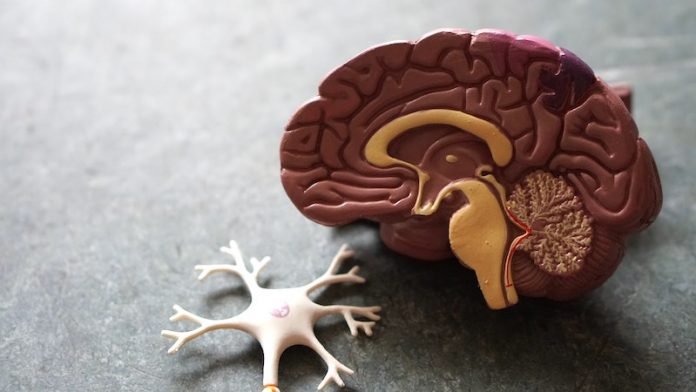
In patients with Alzheimer’s disease, amyloid-beta protein fragments accumulate in the tissue and blood vessels of the brain, likely due to a faulty clearance mechanism.
Scientists from Massachusetts General Hospital found that very slow spontaneous vessel pulsations—also known as ‘vasomotion’ – drive the clearance of substances from the brain.
They showed that targeting and improving this process may help to prevent or treat amyloid-beta accumulation.
The research is published in Neuron and was conducted by Susanne van Veluw et al.
In their study, the researchers injected a fluorescently labeled carbohydrate called dextran into the brains of awake mice, and they conducted imaging tests to follow its clearance.
They showed that vasomotion was critical for clearing dextran from the brain and stimulating an increase of the amplitude of these vessel pulsations could increase clearance.
Also, in mice with cerebral amyloid angiopathy, a condition that causes amyloid-beta to build up in the walls of the brain’s blood vessels, vessel pulsations were hindered and clearance rates were reduced.
The researchers were able to show for the first time that large dilations and contractions of vessels that happen spontaneously at an ultra-low frequency are a major driving force to clear waste products from the brain.
These findings highlight the importance of brain vascular health in fighting Alzheimer’s disease.
If researchers help boost vascular health and therefore improve the clearance of amyloid-beta from the brain, they may be able to prevent or delay the onset of Alzheimer’s disease in the future.
If you care about Alzheimer’s disease, please read studies about the critical time window to stop Alzheimer’s disease, and why memory loss is an early symptom of Alzheimer’s.
For more information about brain health, please see recent studies about how BMI number affects the risk of Alzheimer’s disease, and results showing medical cannabis could help reduce this brain disease.
Copyright © 2022 Knowridge Science Report. All rights reserved.



